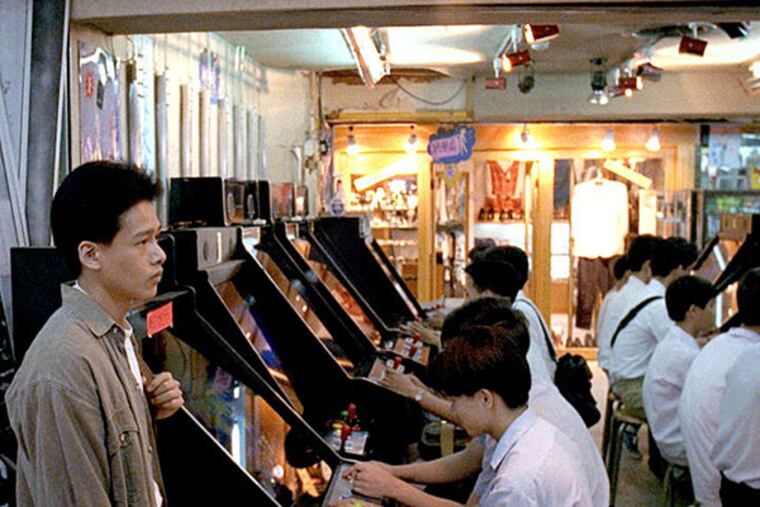Film Review - 'Rebels of the Neon God'
He's widely considered by critics as one of the top directors in the world, but Taiwan-based Malaysian Chinese auteur Tsai Ming-liang's works are hardly rarefied creations. And while he's something of a minimalist, his movies do not have the antiseptic, static, arid feel of so many films classed under that banner.

He's widely considered by critics as one of the top directors in the world, but Taiwan-based Malaysian Chinese auteur Tsai Ming-liang's works are hardly rarefied creations. And while he's something of a minimalist, his movies do not have the antiseptic, static, arid feel of so many films classed under that banner.
Films such as Vive L'Amour (1994), The River (1997), and his most recent entry, the 2013 masterpiece Stray Dogs are lively, urban parables that burrow into the nitty-gritty of life in modern Taipei.
They deserve a far wider audience.
There's no better way to dive into Tsai's world than with his stunning debut, Rebels of the Neon God (1992), which finally is getting its first theatrical release in America.
A breathtaking, disturbing look at urban angst and the emptiness of youth culture, the film introduces us to a character who haunts so many of Tsai's Taipei films: Hsiao-kang (played by the director's longtime collaborator, Lee Kang-sheng), a somber, surly, silent, often petulant youth who doesn't seem to feel at ease anywhere he goes.
When we first see him, Hsiao-kang seems an earnest, if frustrated, college student who works hard into the night. He shares a tidy flat with his taxi-driver father, who makes no attempt to understand - or even like - the youth. His overprotective mother seems never to tire of consulting augers and priests about her son's future.
Appearances can be deceptive. Hsiao-kang doesn't think he fits in at school, and early in the film, he drops out, pocketing a large tuition refund without telling his parents. He spends hours wandering the streets on foot or on his moped and seems incapable or unwilling to connect with others.
His intense angst, his powers of observation, and his soul find a focus when a pair of young petty thieves on a motorcycle smash the side-view mirror of his dad's taxi at a red light. They do it for no real reason, just kicks. And there's really no compelling reason that Hsiao-kang becomes so fixated on the pair, Ah Tze (Chen Chao-jung) and Ah Bing (Chang-bin Jen), except that they seem to enjoy a kind of devil-may-care freedom he longs for.
Moving at a deliberate pace somewhere between a dread-filled reverie and a crime procedural, Neon follows Hsiao-kang as he stalks the two hoods.
When Ah Tze begins a romance with a girl, Ah Kuei (Yu-Wen Wang), Hsiao-kang is there to play Peeping Tom.
There's a deep undercurrent of emotional tension and psychological violence in Rebels of the Neon God, a powerful, suppressed energy that erupts in several brief scenes of violence - petty acts of theft, destruction, vandalism - but never explodes fully. There is no grand confrontation here between Hsiao-kang and the objects of his fascination and his loathing, no duel, no mano-a-mano showdown.
For these youths, there is no catharsis. No release. No escape.
Rebels of the Neon God ***1/2 (out of four stars)
StartText
Directed by Tsai Ming-liang. With
Lee Kang-sheng, Chen Chao-jung, Chang-bin Jen, Yu-Wen Wang. Distributed by Big World Pictures.
Running time: 1 hour, 46 mins.
Parent's guide: Not rated (sexuality, some nudity, violence, smoking).
Playing at: Ritz at the Bourse.
EndText
215-854-2736